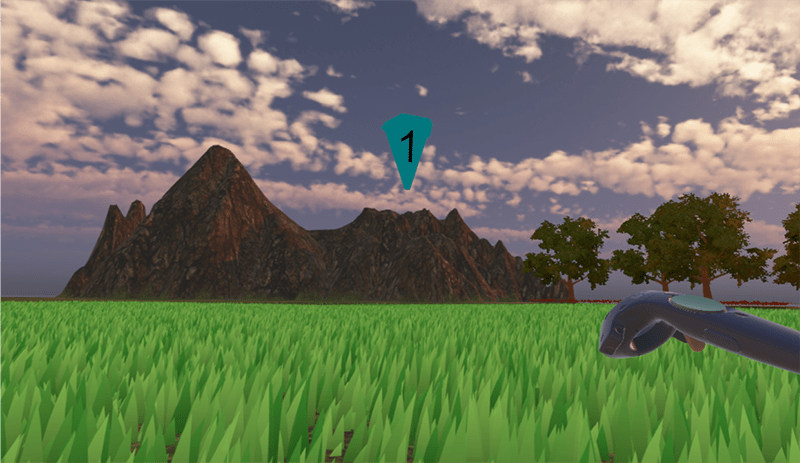You may think of Alzheimer’s as a disease of the elderly, but the truth is people who suffer from it have had it for years — sometimes decades — before they notice. Early detection can help doctors minimize the impact the condition has on your brain, so there’s starting to be an emphasis on testing middle-aged adults for the earliest signs of the illness. It turns out that one of the first noticeable symptoms is a decline in your ability to navigate. [Dennis Chan] at Cambridge Biomedical Research Centre and his team are now using virtual reality to determine how well people can navigate as a way to assess Alzheimer’s earlier than is possible with other techniques.
Current tests mostly measure your ability to remember things, but by the time that’s a problem, things have often progressed. The test has the subject walk to different cones and remember their locations, and has already proven more effective than the standard test.
The next step will be to test about 300 volunteers between the ages of 40 and 60. They will then track these subjects to see if they show signs of mental impairment in the future and correlate that to the original test results. They are hoping to show that they can detect Alzheimer’s earlier before there are any outward symptoms — what’s called preclinical Alzheimer’s.
Scientists believe that a tiny area of your brain — the entorhinal cortex within the temporal lobe — is among the first parts of your brain to feel the effect of Alzheimer’s. This part of your brain is crucial to your navigation ability.
We’ve seen the technology to help track Alzheimer’s patients, but this is a lot more proactive. Music also seems to help unlock memories.















Indeed, this could also be the start of many useful tests for comparative studies into mineral deficiencies, since I was prompted to enter post grad in food science 2010 from my mother’s Alzheimer’s and general health issue re jungle parasites and look at combinatorial mineral interaction issues affecting cognition – I’ve discovered there are clear causal paths worthy of testing since it’s evident mineral deficiencies are widespread where Alzheimer’s more prevalent.
Something like this tuned to more frequent usage tied with dietary changes with GRAS rated mineral supplementation of various kinds could offer a path to speed up casual research not needing FDA/TGA bureaucracy. Especially at the non pharmaceutical end where mineral supplements not previously considered functional in cognition eg copper and the NMDA receptor have been shown to be of importance…
https://www.alzforum.org/member-directory/mike-massen
Then there would be differences correlating with different diets across the world.
The ability to properly identify scents actually shows promise for much earlier detection of Alzheimer’s also.
This led me down this rabbit hole where similarly the odor of the patient can apparently predict Parkinson’s.
https://www.bbc.com/news/uk-scotland-34583642
Dogs could sniff them out.
How about combining the tests. Navigate to different locations based on scents.
Is there anything in current games that would show to the world at large there’s a problem? e.g. falling FPS scores
Not that I think you can put down to just this. I’m a lot worse at FPS’s than I was in my teenage years. Not enough to be worried, but enough to be able to put it down to being slower and having slightly worse reaction times.
http://www.zenjoi.com
The next HTC Vive will have eyetracking build in. That can be useful for more than foveated rendering only: Emory University. “Mild Dementia Detected In Humans Through Eye Tracking.” ScienceDaily. ScienceDaily, 15 April 2009. .
Not very interesting. The appification of AD detection is done by so many people, all with the same promises. I don’t see the need to put a VR headset into the equation. Plus, the smell test is already pretty good and real AD detection requires a postmortem anyways.